Medewerkers met het vakgebied Biochemie & Moleculaire Biologie
Wetenschap ontwikkelt zich waar verschillende vakgebieden samenkomen. Alleen al daarom bestaat er binnen de RUG een grote verscheidenheid aan vakgebieden, met daarbinnen een groot aantal vakspecialisten. Met behulp van onderstaand overzicht, gebaseerd op een vaststaande indeling van wetenschapsgebieden, vindt u op elk vakgebied de juiste deskundige. Komt de deskundige die u zoekt niet voor in deze lijst? Via een vergelijkbaar vakgebied of een gerelateerde faculteit vindt u mogelijk alsnog de juiste persoon.
Overzicht van alle vakgebieden
Medische Celbiologie
Public Engagement
Citizen Science
Public Engagement
Citizen Science

Contact
Functie
Coördinator Bètawetenschapswinkel & Docent Wetenschap & Samenleving
Synthetic biology

Contact
p.alvarez.sieiro rug.nl
Functie
Lecturer BSc Biology
Medical Systems Biology Metabolism plays a key role in most, if not all diseases. Metabolism is complex, not just due to the many different molecules involved, but rather because the interactions between metabolites give rise to non-intuitive phenomena.... lees meer

Contact
Functie
Professor in Medical Systems Biology
Vakgebied

Contact
Functie
Research Technician
Vakgebied

Contact
Functie
Research Analist
Vakgebied
Main interest: Fibrosis; Foreign body reaction; Tissue engineering of cartilage; role of fibroblasts and macrophages in tissue repair; role of mesenchymal stem cells in tissue repair. Expertise in collagen (synthesis and degradation; fibrosis) and... lees meer

Contact
Functie
Hoogleraar
Structural Biology
cryo Electron Microscopy (cryo-EM)
Membrane Proteins
cryo Electron Microscopy (cryo-EM)
Membrane Proteins

Contact
Functie
Associate Professor, Head of cryo-EM unit
Ik ben een structureel biochemicus die werkt op het gebied van bacteriële eiwittoxinen.

Contact
Functie
Assistant professor
My research interest is the role that membrane proteins and lipids play as antigens in T cell activation, and their potential as vaccination agents.

Contact
Functie
Assistant Professor
iGEM - International Genetically Engineered Machine competition . Please find additional information in the links below.

Contact
Functie
policy/strategy, academic & industrial partnerships, staff development & recruiting, quality management, technology transfer and public relations

Contact
Functie
Wetenschappelijk Coördinator

Contact
r.blok rug.nl
Functie
Research technician
Antigen presenterende cellen, macrofagen, dendritische cellen

Contact
Functie
Professor in Molecular Immunology
Pharmaceutical Biotechnology

Contact
Functie
onderwijsondersteuner
Vakgebied
Hematology, Leukemia, Epigenetic regulation of gene expression

Contact
v.van.den.boom umcg.nl
Functie
Aging, cellular senescence, cancer

Contact
m.borghesan rug.nl
Functie
dr
Next generation probiotics
Gut microbiome interaction with host
Anaerobic bacterium
Gut microbiome interaction with host
Anaerobic bacterium

Contact
g.bravo.ruiseco.sanchez umcg.nl
Functie

Contact
Functie
UHD

Contact
s.w.m.bruggeman umcg.nl
Functie
Rosalind Franklin fellow (scientist, junior group leader)

Contact
Functie
Lecturer BSc Biology: Biomedical Sciences
Transcriptional, translational and post-translational control of gene regulation.

Contact
Functie
Professor
Atomic force microscopy, viruses


Contact
s.chordia rug.nl
Functie
PhD student
Artificial metalloenzymes

Contact
b.dacevic rug.nl
Functie
PhD candidate
Organische chemie, enzym kinetiek, bioorthagonale reacties, cellulaire modelsystemen

Contact
Functie
Universitair Hoofd Docent Farmaceutische Epigenetica

Contact
Functie
Hoogleraar
Bacteriële genexpressie, eiwitlokalisatie, eiwitsecretie, bacterie-gastheerinteracties, bacteriële pathogenese, beeldvorming van bacteriële infecties

Contact
Functie
Hoogleraar Medische Microbiologie
Neurodegeneration, Mitochondrial function, Inflammation, Potassium channels

Contact
Functie
Hoogleraar - Regenerative Neuropharmacology

Contact
Functie
PhD student
Membraan biologie, Eiwittranslocatie en membraaneiwit biogenese, Multidrugresistentie, Biotechnologie van Filamenteuze Schimmels en Gisten, Membraan biologie van hyperthermofiele Archaea, Synthetische cellen

Contact
Functie
Hoogleraar Moleculaire Microbiologie

Contact
Functie
Onderzoeksanalist
Neurowetenschappen, moleculaire biologie, neuroinflammatie, gen expressie, epigenetica, celbiologie, ontwikkeling, multiple sclerose, ziekte van Alzheimer

Contact
b.j.l.eggen umcg.nl
Functie
Professor
Professor in Molecular Neurobiology and Neuroimmunology
Background:
Our group is working at the cross roads of inflammation and neuronal function with molecular, cellular and behavioural approaches in various neuronal disease models.
Molecular... lees meer
Background:
Our group is working at the cross roads of inflammation and neuronal function with molecular, cellular and behavioural approaches in various neuronal disease models.
Molecular... lees meer

Contact
Functie
Hoogleraar

Contact
Functie
Klinisch Moleculair Bioloog in de pathologie
Liver fibrosis, Inflammatory Bowel Disease, Microbiome, Human Intestinal and Liver organoids

Contact
Functie
Hoogleraar Experimentele Hepatologie en Gastro-enterologie
Molecular diagnostics of infectious diseases -Molecular Biology - Cell biology - Microbiology - Genomics - Next Generation Sequencing - Genotyping
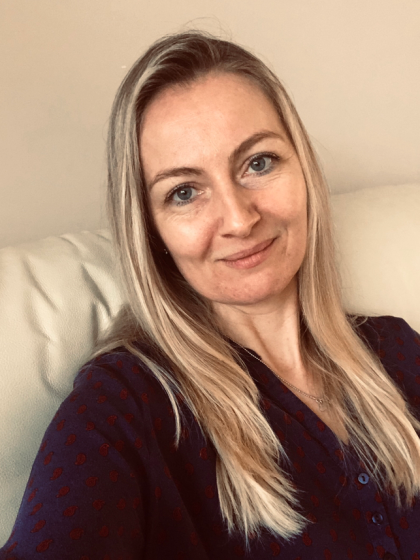
Contact
m.a.chlebowicz umcg.nl
Functie
PostDoc/ MMM (Medisch Moleculair Microbioloog)
Veruit de meeste kankercellen hebben een afwijkende hoeveelheid erfelijk materiaal Wij bestuderen wat de gevolgen hiervan zijn voor gezonde cellen en hoe kankercellen dit gebruiken om snelelr te gaan delen. Door deze eigenschap, die met name kankercellen... lees meer

Contact
f.foijer umcg.nl
Functie
Professor
Enzyme engineering, enzyme discovery, redox enzymology, biocatalysis

Contact
Functie
Hoogleraar

Contact
j.a.f.geertsma rug.nl
Functie
PhD kandidaat
Corinna Glasner is wetenschappelijk projectmanager bij de lead partner van de twee INTERREG V projecten EurHealth-1Health en health-i-care en onderzoeker bij de afdeling Medische Microbiologie en Infectiepreventie. Haar expertise ligt in de moleculaire... lees meer

Contact
Functie
wetenschappelijk project manager
Autophagy, neurodegeneration, Parkinson's disease, yeast, membrane contact sites, microscopy

Contact
r.gomez.sanchez umcg.nl
Functie
Postdoctoral researcher

Contact
Functie
Celbeweging
Signaaltransductie
Signaaltransductie

Contact
Functie
Hoogleraar Cel Biochemie
Natural product discovery and characterization
Engineering of microbial cell factories
Enzyme discovery and characterization
Structural Biology, macromolecular X-ray crystallography
Engineering of microbial cell factories
Enzyme discovery and characterization
Structural Biology, macromolecular X-ray crystallography

Contact
Functie
Adjunct hoogleraar Farmaceutische Biologie
microbial metabolism, systems biology, single cell analysis, modeling

Contact
Functie
Hoogleraar
Toegepaste Biotechnologie/Moleculairebiologie/Microbiologie/
Eiwitkristallografie/ Proteomics (LC-MS)/ Massaspectrometrie/Analytische Chemie
Eiwitkristallografie/ Proteomics (LC-MS)/ Massaspectrometrie/Analytische Chemie

Contact
Functie
Coördinator Analytical Unit at Stratingh Institute for Chemistry
Winterslaap onderzoek

Contact
Functie
Hoogleraar Farmacologie
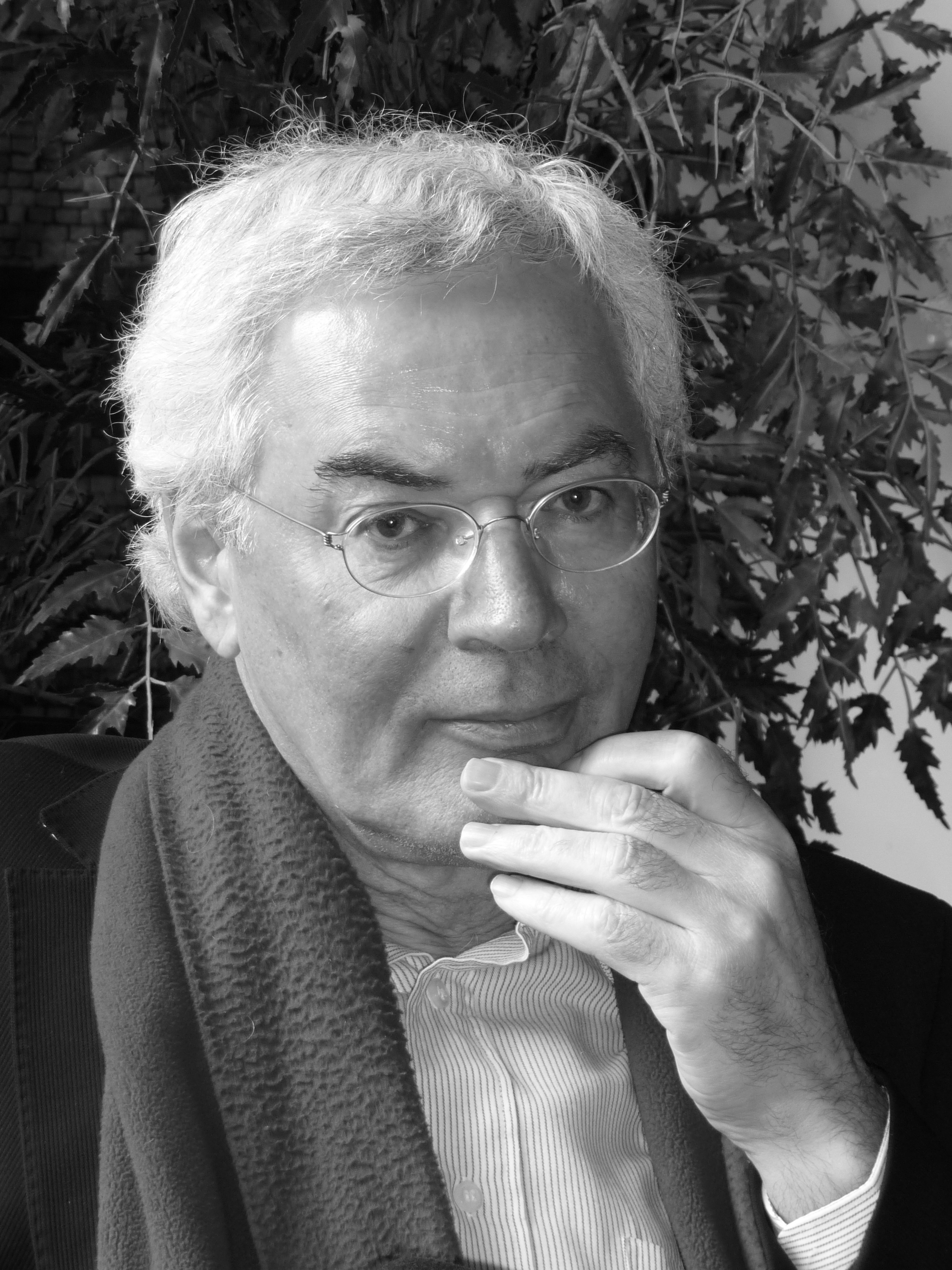
Contact
Functie
Hoogleraar
Stamcellen m.b.t. hartfalen

Contact
Functie
Postdoctoral fellow
Vakgebied
RNA structural dynamics

Contact
Functie
Associate Professor


Contact
louis.van.de.zande rug.nl
Functie
Emeritus Associate professor
Computer Aided Drug Discovery

Contact
Functie
Assistant Professor
Molecular genetics, (meta-)genomics, (meta-)transcriptomics, microbiology, DNA-seq, RNA-seq, bacteriocins, lantibiotics, anti-microbial peptides, gene expressions and regulation, Bioinformatics, Statistics, R, Perl, Python, JavaScript, PHP, Linux... lees meer

Contact
Functie
Bioinformaticus / Docent
Understanding chemosensitivity of testicular germ cell tumors, Inducing apoptosis and inhibiting pro-survival to enhance drug efficacy in cancer, Identifying novel drugable pathways in ovarian and cervical cancer.

Molecular Biology, Physiology, Endocrinology, Nuclear Hormone Receptors, Energy Metabolism, Type 2 diabetes, NAFLD, ABC transporters

Contact
Functie
Professor

Contact
c.p.joschko umcg.nl
Functie
Analytical chemistry. Carbohydrate & enzyme characterization. Protein and DNA analysis, gene expression and protein purification. Plant biomass.

Contact
Functie
cell cycle regulation and dynamics, post-translational modifications, Xenopus laevis, live cell microscopy

Contact
Functie
Assistant Professor (Rosalind Franklin fellow)
Vakgebied

Contact
s.g.kaya rug.nl
Functie
Promovendus
Neuroendocrinology and oncology

Contact
Functie

Endothelial cells, endothelial dysfunction, endothelial-mesenchymal transition, mitochondrial dysfunction, mitochondrial medicines, microRNA, epigenetics, inflammation, heart failure, cardiac fibrosis, atherosclerosis, vascular calcification, (diabetic)... lees meer

Contact
Functie
Universitair Hoofd Docent
Targeted therapy, Biology of cancer stem cells: novel therapeutic opportunities, Apoptosis, Neuro-oncology

Contact
Functie
Professor
Vakgebied
Galzouten, Cholesterol, Lipiden, Nucleaire receptoren, Fluxomics

Moleculaire Genetica

Contact
Functie
Hoogleraar

Moleculaire Celbiologie

Contact
Functie
Universitair hoofddocent Cel Biochemie
Vakgebied
Biochemie, Ontwikkeling, Innovatie, B2B
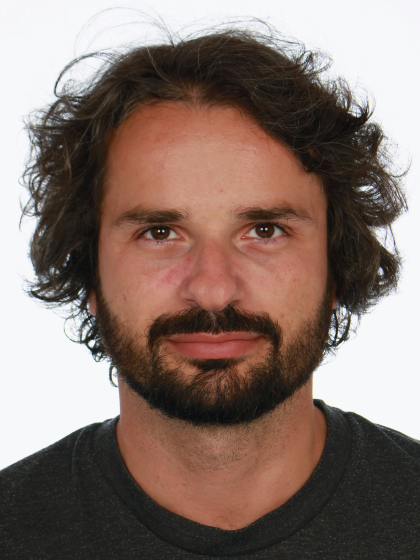
Contact
Functie

Contact
chunzhe.lu rug.nl
Functie

Biotechnology & Applied Microbiology, Microbiology, Food Science & Technology, Biobased Economy, Enzymology, Intellectual Property and Patents, Applied Biocatalysis, Starch, Carbohydrates

Contact
Functie
Hoogleraar
Electrophysiology, Single-molecule Nanopore Technology

Contact
Functie

Contact
a.marmolejo.garza umcg.nl
Functie
Promovendus
Geavanceerde fluorescentiemicroscopie, microscopie van enkelvoudige moleculen, superresolutiemicroscopie, smFRET, membraanproteïnen, GPCR's

Contact
Functie
Postdoctoraal onderzoeker bij de Membrane Enzymology groep
Vakgebied
Autophagy, aggrephagy, protein aggregate, neurodegenerative diseases, BPAN

Contact
m.mauthe umcg.nl
Functie
Chemical Biology, Biomolecular Chemistry, Biotechnology, (Bio)catalysis

Contact
Functie
Biotechnische handelingen, moleculaire/genetische biologie en veldwerk assistentie.

Contact
Functie
Onderzoeks Analist / Biotechnicus

Contact
m.meijer04 umcg.nl
Functie
systems biology, TOR signaling, cell growth, cell cycle, mathematical modelling, machine learning, probability & statistics

Contact
Functie
Associate Professor

Contact
Functie
PhD student
Membrane protein, cryoEM

Contact
l.moissonnier rug.nl
Functie
Postdoc

Contact
Functie
Hoogleraar Experimentele Hepatologie en Gastro-enterologie


Contact
Functie
Research Analist
Vakgebied
Gene Regulation with emphasis on the control of translation
Molecular mechanisms in life span determination, ageing and age related diseases
Molecular mechanisms in cancer development
Molecular mechanisms in life span determination, ageing and age related diseases
Molecular mechanisms in cancer development

Contact
Functie
Research Associate
Vakgebied
Therapie resistentie; Bioengineering; Tumor micromilieu; 3D celkweek; Extracellulaire Vesicles.

Contact
Functie
Universitair Hoofddocent / Adjunct Hoogleraar

Contact
Functie
Postdoc

Contact
k.e.niezen-koning rug.nl
Functie
European Clinical Laboratory Geneticist (Biochemist, PhD, ErCLG) Metabolic Diseases

Contact
Functie
Hoogleraar

Contact
marco.van.den.noort rug.nl
Functie
Postdoc
Research in the Onck group aims at understanding the micromechanical and functional behavior of (biological) materials based on an accurate description of the underlying (bio-) physical mechanisms. Computational techniques (e.g. molecular dynamics, finite... lees meer

Contact
Functie
Hoogleraar

Contact
f.g.ostergaard rug.nl
Functie
Kernporiecomplex; Intrinsiek ongestructureerde eiwitten

Molecular biology, protein biochemistry and bioinformatics.

Contact
Functie
Ph.D. student

Contact
Functie
Hoofd Interfacultair Massaspectrometriecentrum
Type 1 Diabetes pathophysiology, pancreatic islets, biomaterials

Contact
e.pinheiro.machado umcg.nl
Functie
PhD student
Biokatalyse, enzymologie, enzym engineering, directed evolution, enzym remmers, synthetische biologie

Contact
Functie
Hoogleraar Farmaceutische Biotechnologie Directeur Groningen Research Institute of Pharmacy (GRIP)

Contact
v.d.pool rug.nl
Functie
PhD Student
Membraan Transport, Synthetische Biologie, Enzymologie, Membraan Biologie, Fluorescentie Microscopie, Membraan Reconstitutie, Structuur-Functie van Eiwitten
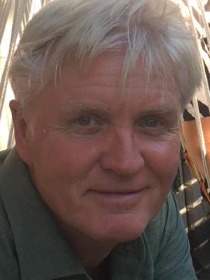
Contact
Functie
Hoogleraar Biochemie
Systems biology of Predatory Bacteria

Contact
r.van.raaphorst rug.nl
Functie
Assistant Professor
Organic chemistry, biocatalysis

Contact
Functie
Structural Biology, Virology

Contact
Functie
Assistant Professor, Pharmacology of host-pathogen interactions
in vivo metabolism, stable isotopes, metabolomics

Contact
Functie
Hoogleraar Erfelijke Varieteit van het Metabolisme, emeritus
Biotechnische handelingen, moleculaire/genetische biologie
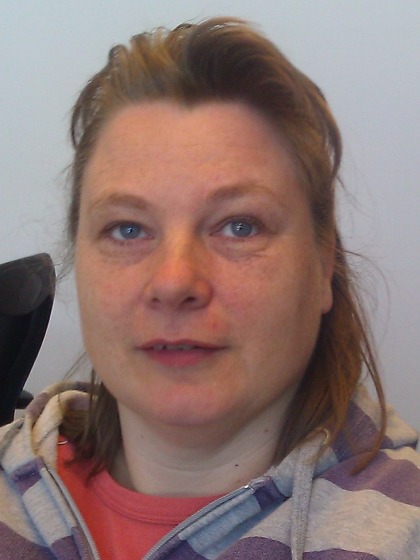
Contact
Functie
Onderzoeks analist / Biotechnicus

Contact
m.requesens.rueda umcg.nl
Functie
biomoleculaire chemie & katalyse

Contact
Functie
hoogleraar

Contact
Functie
Hoogleraar
Biocatalyse
Enzymologie
Enzymevolutie & ASR
Enzymologie
Enzymevolutie & ASR
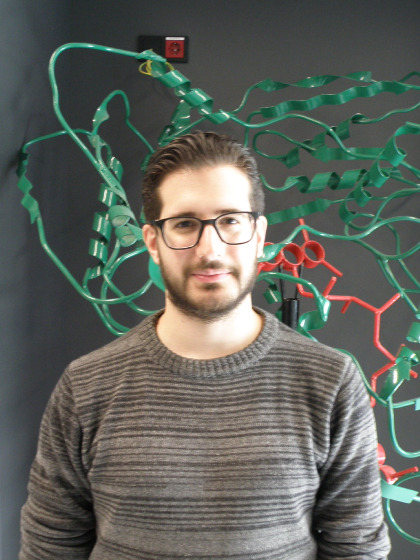
Contact
f.rosciani rug.nl
Functie
Promovendus

Contact
n.j.rueda.forero umcg.nl
Functie
PhD Student
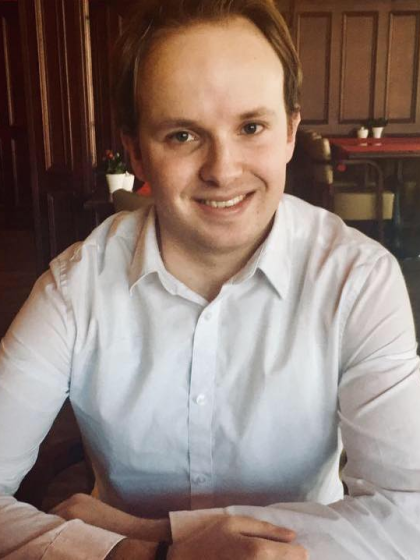
Contact
m.g.s.rutten umcg.nl
Functie
PostDoctoral Researcher
Vakgebied

Contact
e.g.sanchez.rueda rug.nl
Functie
PhD Student
Complex traits Genetics, Complex traits mapping, Genetics in Isolates, Genome-wide association studies, Quantitative genetics, Genotype Imputation Methods


Contact
Functie
Hoogleraar Bacteriële Celbiologie
Biocatalysis, Redox enzymes, Biocatalytic cascades, Protein engineering, Synthetic biology, Strain engineering

Contact
Functie
Assistant Professor (Rosalind Franklin Fellow)
archaea, archaeal viruses, virus attachment & entry, archaeal cell surfcae,

Contact
Functie
Postdoctoraal Onderzoeker
I am a medical doctor working in the research field of molecular biology, biochemistry, microbiology.

Contact
Functie
promovendus
Moleculaire technieken DNA, labmanagement, insectenkweek.

Contact
m.siebers rug.nl
Functie
Research Technician voor Evolutionary Genetics

Contact
Functie
Hoofd Experimenteel Cardiologisch Laboratorium
Inflammation, vesicular transport, lipid metabolism, cholesterol transport, mouse transgenesis, liver disease

Contact
Functie
Professor of Molecular Genetics and Translational Biology
Artikel 9
Stralingsbescherming 5B
Stralingsbescherming 5B
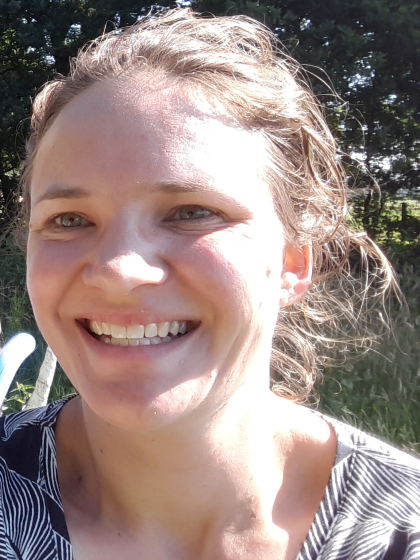
Contact
Functie
Research analist

Contact
a.a.steinhauser rug.nl
Functie
PhD student
Vakgebied
Cryo-Electron Microscopie

Contact
Functie
Facility technician at Electron Microscopy unit
Vakgebied
Medische biologie


Contact
Functie
Research chemist
Eiwitkristallografie
Enzym katalyse
Structuurbiologie
Enzym katalyse
Structuurbiologie

Contact
Functie
Universitair Docent

Contact
Functie
Promovendus
Vakgebied
• Plant specialized metabolism
• Functional genomics
• Bioenergy crops
• Abiotic stress
• Nectar production
• Functional genomics
• Bioenergy crops
• Abiotic stress
• Nectar production

Contact
k.j.tiedge rug.nl
Functie
Assistant Professor | Functional Genetics and Genomics
Vakgebied
Aging, extracellular matrix, neurodegeneration, cancer

Contact
Functie
Assistent Professor
Evolutionaire Cel Biologie
Vergelijkende Genoom Analyse
Biologie van de Nucleus & Chromosomen
Vergelijkende Genoom Analyse
Biologie van de Nucleus & Chromosomen

Contact
Functie
Onderzoeker
Single-molecule biophysics

Contact
Functie
Associate Professor of Single-Molecule Biophysics and Biochemistry
Vakgebied
Immunoblotting, Cloning, Confocal Microscopy, Chromatography

Kernporiecomplex, kernmembraan, cellulaire veroudering, intrinsic disorder, liquid-liquid phase separation, Baker's yeast

Contact
Functie
Hoogleraar Cellulaire Biochemie
Vakgebied
STED super-resolutie microscopie, image-analysis, single-molecule biofysica, celbiologie

Contact
Functie
Associate Professor Molecular Biophysics
Strategie & beleid

Contact
Functie
Managing Director
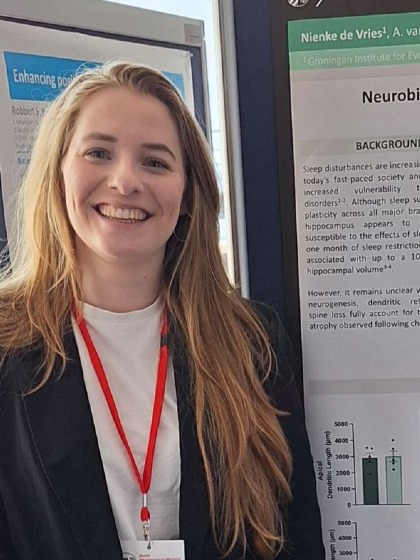
Contact
Functie
Research Technician Neurobiologie & Manager IHC/IF lab
Cell cycle regulation and cellular responses to genotoxic stress, DNA damage and repair pathways and their relevance for cancer treatment

Contact
Functie
Hoogleraar Moleculaire Oncologie, bestuur Comprehensive Cancer Center UMCG
Vakgebied

Contact
moor.de.waal rug.nl
Functie
Carbohydrate chemistry
Glycobiology
Glycobiology
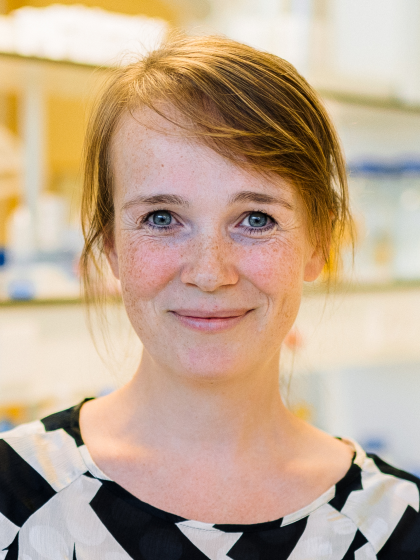
Contact
Functie
Hoogleraar Chemische Glycobiologie
Mijn expertise is de kernspinresonantie spectroscopie van vaste stoffen, oftwel vaste-stof NMR spectroscopie. Met deze analytsich-chemische techniek analyseren we bio-materialen, eiwit-aggregaten en meer. We werken ook aan het ontwikkelen van vaste-stof... lees meer

Contact
Functie
Adjunct Hoogleraar Solid State NMR Spectroscopie
Gynecologic Oncology


Contact
Functie
Associate Professor
Proteomics/Massa spectrometrie/Biochemie

Functie
Principal investigator
CRISPR-Cas, Protein Engineering, High throughput screening, Synthetic Biology

Contact
Functie
Universitair Docent - Chemische en Farmaceutische Biologie

Contact
zhengyang.wu rug.nl
Functie
PhD student
Primer design
DNA/RNA extraction, DNA quantification (nanodrop, qubit)
PCR, qPCR, nested PCR
Gel-electrophoresis
Sanger sequencing
Microsectioning (microtome, vibratome and cryostat)
FISH, ELISA
Microscopy (light, fluorescence, confocal)
Operating microplate... lees meer
DNA/RNA extraction, DNA quantification (nanodrop, qubit)
PCR, qPCR, nested PCR
Gel-electrophoresis
Sanger sequencing
Microsectioning (microtome, vibratome and cryostat)
FISH, ELISA
Microscopy (light, fluorescence, confocal)
Operating microplate... lees meer

Contact
Functie
Lab technician
Molecular Microbiology, Microscopy techniques

Contact
a.u.zielinska rug.nl
Functie
Yeast (Saccharomyces cerevisiae) and nematode worm (Caenorhabditis elegans) ageing studies
RNA-seq
RNA-seq

View this page in: English
